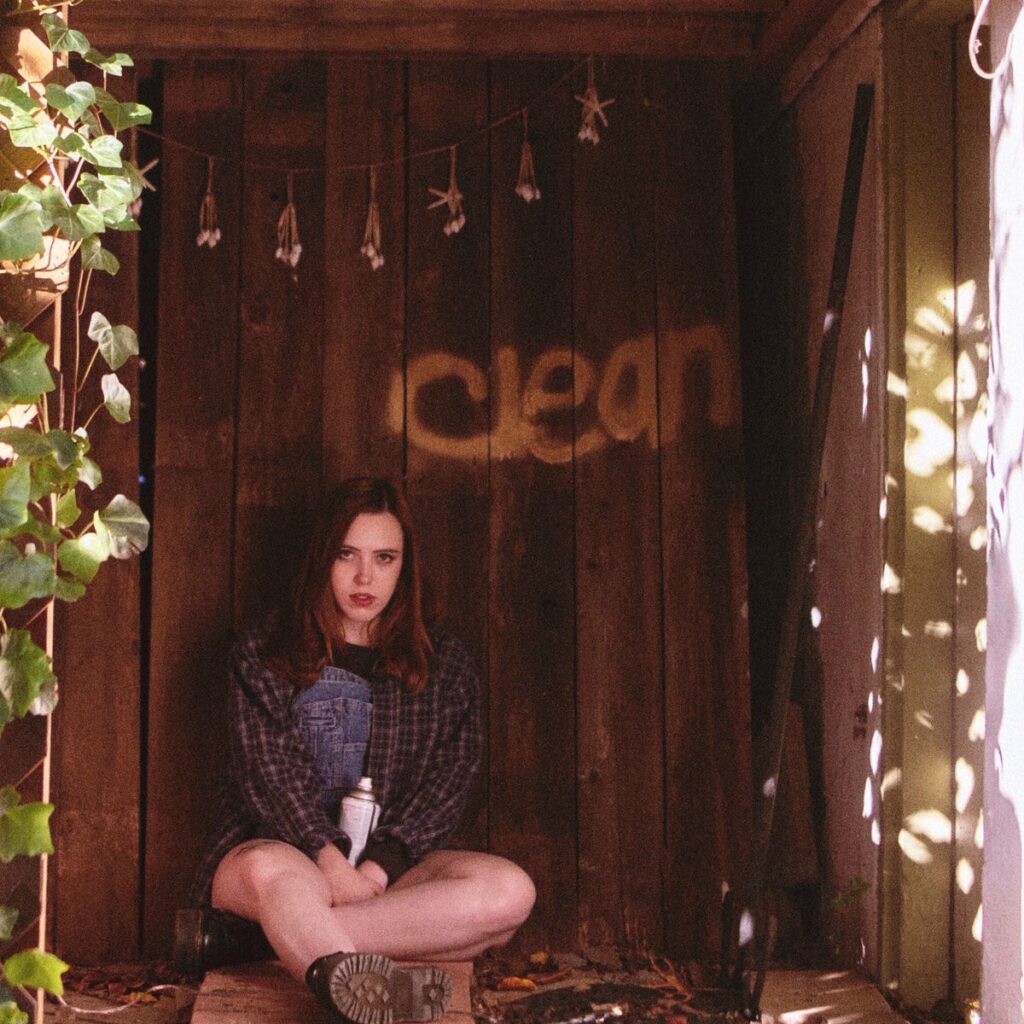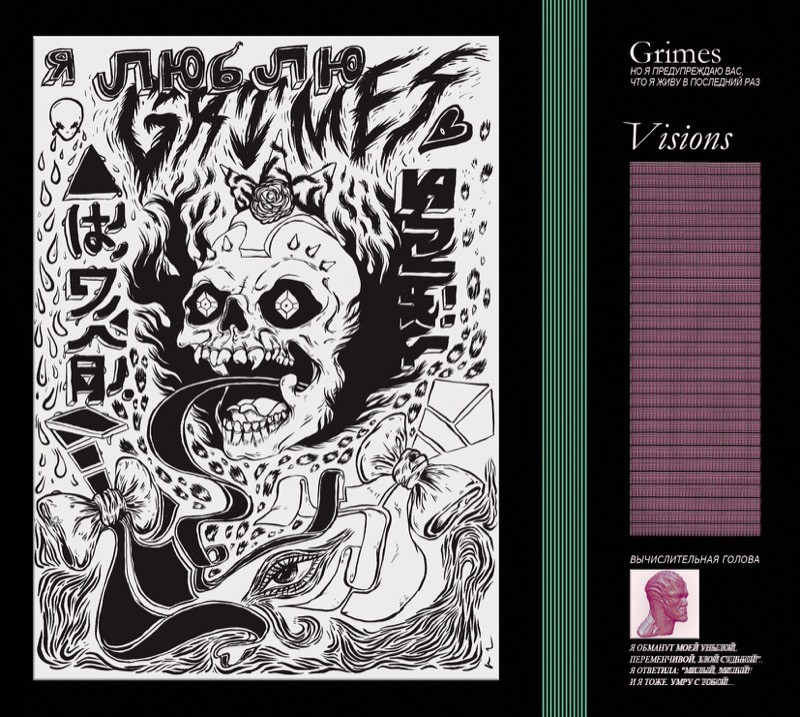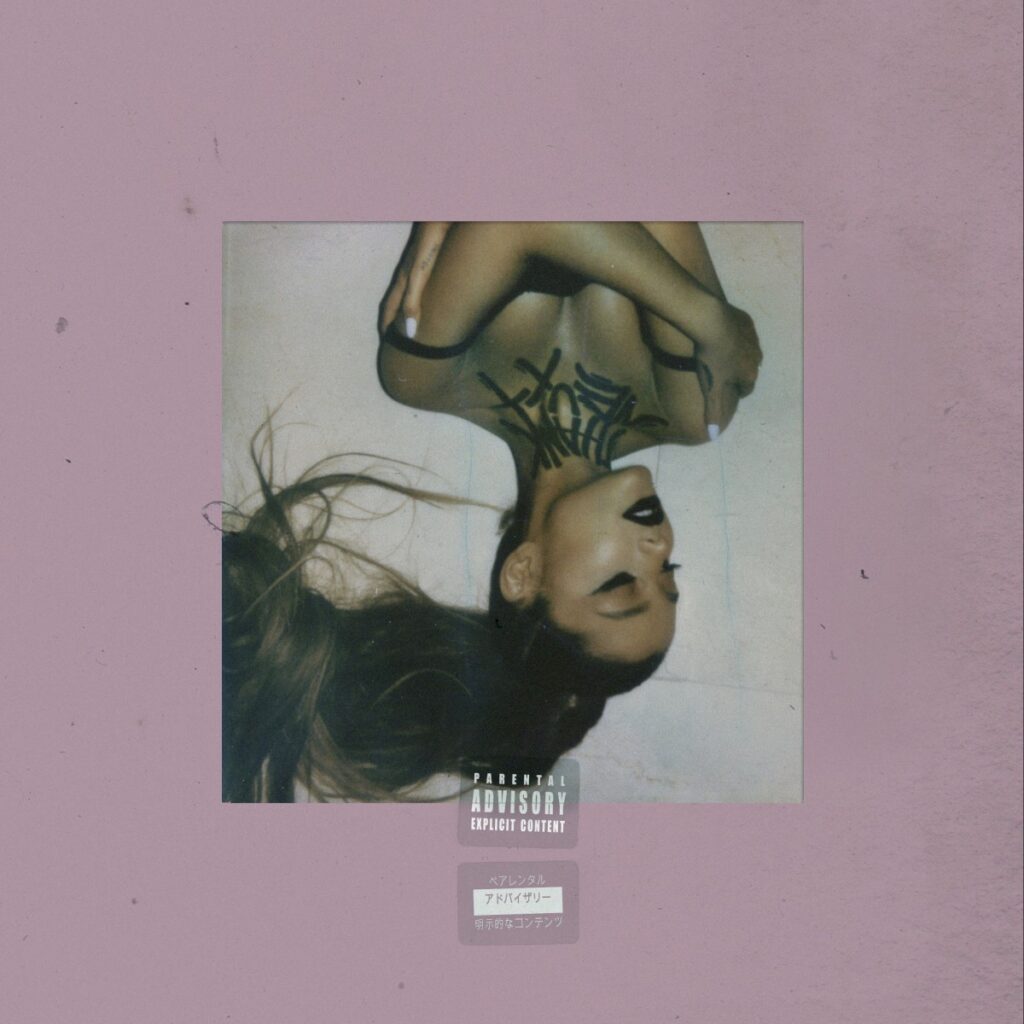50.
Soccer Mommy, ‘Clean,’ 2018

Soccer Mommy’s debut studio album, Clean, is an introspective journey through the tumultuous landscape of young adulthood, marked by themes of love, heartbreak, vulnerability, self-discovery, and emotional resilience. The album opens with Still Clean, which sets the tone by exploring the aftermath of a toxic relationship. This introduction encapsulates the recurring motif of grappling with emotional clarity and understanding one’s self-worth, prevalent throughout the album. Tracks like Your Dog is a raw, confrontational track where Sophie Allison asserts her independence and rejects being demeaned in a relationship. It’s a powerful declaration of self-respect and autonomy, characterized by the opening line: “I don’t wanna be your fucking dog that you drag around.” Scorpio Rising, on the other hand, uses astrological symbolism to discuss heartbreak, adding a unique, cosmic dimension to personal pain. Allison’s lyrics are a cornerstone of Clean, offering vivid storytelling and emotional transparency. The gentle track Flaw features a serene vignette of “skinny dipping by my house,” and similarly, Cool presents a narrative about societal and self-imposed pressures to embody the archetype of the unattainable “cool girl,” exploring themes of self-doubt and desire for acceptance. Wildflowers, the album’s closer, introspectively examines Allison’s relationship with religion, signaling the introspective and reflective nature of the album. These songs collectively portray a nuanced narrative of growing up and navigating the complexities of identity and emotional health. Clean leans heavily into the lo-fi indie rock genre, yet it does not shy away from experimenting with heavier sounds. Allison frequently employs dreamy guitar melodies and minimalistic arrangements, creating an intimate and contemplative atmosphere. The opener Still Clean showcases the effective use of distortion, adding an edge to key moments in the song. Cool, with its sludgy and dizzying climax, provides a stark contrast to the album’s titular notion of being “clean.” The album cleverly incorporates imperfections, such as deliberate fluctuations in tape speed and spliced demo takes, adding authenticity and a human touch to the recordings. This blend of polished production with DIY aesthetics complements her clear, conversational vocals and creates a unique soundscape that is both sophisticated and relatable.
Wildflowers don’t grow in the city
I dreamt the sidewalk broke in two
The earth was calling to me
A line stretched down Fifth Avenue
It came in through my window
Carry me home, like you used to
49.
Grimes, ‘Visions,’ 2012

Grimes’ third studio album, Visions, is a landmark in the synth-pop and electronic music landscape, where Claire Boucher’s ability to transform hazy, quixotic sketches into tangible, hook-heavy electro-pop is on full display. Visions is an album born out of both isolation and experimentation. Grimes reportedly created the album during a three-week period of sleep deprivation, seclusion, and amphetamine use. The decision to black out her windows and disconnect from the outside world gave rise to an introspective yet otherworldly soundscape. This environment, though extreme, catalyzed her creative process, allowing her to delve into her subconscious mind. Thematically, Visions oscillates between light and dark, romanticism and melancholy, introspection and futuristic musings. Grimes’ lyrical approach is as enigmatic as her sound. The vocals on Visions often serve more as another instrument in the mix rather than the focal point, with her voice morphing into various tones and textures. The lyrics, when discernible, offer a peek into her stream of consciousness. Songs like Genesis and Oblivion, the album’s standout tracks, encapsulate the duality inherent in her work. Oblivion processes personal trauma from sexual assault, creating a juxtaposition of ethereal beauty and sinister undercurrents. The track addresses themes of fear and vulnerability, wrapped in a dreamy, synth-driven soundscape that belies its heavy subject matter of personal assault. Conversely, Genesis portrays a gossamer reflection of weightless love and presents a more abstract, almost whimsical lyrical style that complements its light, airy production. Musically, Visions is a rich tapestry woven from an eclectic mix of genres. Grimes’ self-professed inexperience with traditional music training becomes her greatest asset, as she freely navigates between electronic, pop, and indie elements without adhering strictly to any single genre. Recorded entirely on Apple’s GarageBand software in her bedroom, the production of Visions is both rudimentary and groundbreaking, and this DIY approach lends the album a raw authenticity. The album brims with diverse sonic influences. Tracks like Be a Body blend ethereal vocals with cyborg R&B beats, while Vowels = Space and Time offers a quirky take on Hi-NRG, showcasing her genre-defying prowess. The composition is characterized by a maximalist approach, filled with looping synths, intricate textures, and unexpected melodies that draw listeners into her immersive world.
48.
Ariana Grande, ‘thank u, next,’ 2019

Ariana Grande’s thank u, next stands out not only as a commercial success but as a poignant and introspective piece that offers insight into her personal life and emotional landscape. The central concept of thank u, next revolves around self-reflection and emotional honesty. Following the release of Sweetener just six months prior, Grande was navigating through the aftermath of personal tragedies (the loss of her ex-boyfriend Mac Miller and the end of her engagement to Pete Davidson) and public scrutiny. Grande describes the album as capturing “a super sad chapter” in her life and such emotion-laden context provided the backdrop for an album that is strikingly sincere and vulnerable. The themes of the album oscillate between mourning and acceptance, empowerment, and self-discovery. The lyrics of Thank U, Next are unflinchingly honest, reflecting Grande’s raw emotional state. In imagine, Grande explores themes of denial and escapism, likely referring to her late ex-boyfriend Mac Miller. The album’s title track, thank u, next, is particularly notable for its candid reflection on past relationships. Grande name-checks her ex-boyfriends Big Sean, Ricky Alvarez, Pete Davidson, and Mac Miller, expressing gratitude for the lessons learned rather than bitterness or resentment. Songs like needy and NASA delve into themes of vulnerability and the need for personal space, respectively. The lyrics throughout the album are rich with metaphorical language, with an analysis in Semantic Scholar noting the use of 73 instances of figurative language, including metaphors, similes, and hyperboles. From a compositional standpoint, thank u, next mixes pop, R&B, and trap elements to create a unique sonic palette. imagine is characterized by its dreamy, lush atmosphere, and Bad Idea features elegant string arrangements. Tracks like needy and fake smile showcase a more subdued and introspective side, utilizing minimalist instrumentation and trap beats to highlight Grande’s emotive vocals. 7 rings stands out with its interpolation of “My Favorite Things” from The Sound of Music, transforming a familiar tune into a modern-day anthem of indulgence and empowerment This eclectic mix of styles reflects Grande’s willingness to take risks and push the boundaries of conventional pop music. The album’s composition doesn’t adhere to a single pattern, which keeps the listener engaged throughout its duration.
I’ve got so much love
Got so much patience
I’ve learned from the pain
I turned out amazing
I’ve loved and I’ve lost
But that’s not what I see
‘Cause look what I’ve found
Ain’t no need for searching
47.
Sky Ferreira, ‘Night Time, My Time,’ 2013

Sky Ferreira’s debut studio album, Night Time, My Time, dives deep into her personal experiences and emotional struggles. The album title is a reference to Twin Peaks: Fire Walk with Me, indicating an initial nod towards a mysterious and somewhat darker undertone. Thematically, the album is an exploration of Ferreira’s inner world, encompassing themes such as failure, love, volatile relationships, and feminism. According to Ferreira, the album was crafted to offer listeners a genuine insight into her life, emotions, and the challenges she faced, particularly against the backdrop of industry pressures. One prominent theme of the album is failure, influenced significantly by Ferreira’s tumultuous relationship with her record label. The repeated delays in the album’s release and the commercial failures of her earlier singles underscore this motif. The time Ferreira spent grappling with these setbacks translated into a lyrical exploration of frustration, anger, and ultimately redemption and self-confidence. The lyrics in Night Time, My Time are intensely personal and confessional, offering a glimpse into Ferreira’s psyche. Her writing reflects a blend of vulnerability and defiance. For instance, I Blame Myself addresses the pressures of her reputation and the personal responsibility she feels for her public image, resonating with themes of accountability and empowerment. The title track, Night Time, My Time, delves into feelings of isolation and emotional turbulence. The chorus, “Night time is my time, I’m drowning, not waving,” encapsulates a profound sense of being overwhelmed by darkness and emotional struggles. Other tracks like Everything Is Embarrassing and You’re Not the One balance angst with the introspection of her personal relationships. Night Time, My Time is a fusion of indie rock, synth-pop, and a variety of other genres. Ferreira and her producers, including Ariel Rechtshaid and Justin Raisen, blend elements of 1980s pop, 1990s grunge, 1970s art rock, new wave, post-punk, and more. The album features aggressive guitars and hard-hitting tracks like I Will and You’re Not the One, juxtaposed with more melodic new wave influences in Love in Stereo and 24 Hours. Songs like Heavy Metal Heart blend grunge-inspired guitar riffs with pop melodies, creating a sound that is raw yet accessible. The use of arcade game samples and distorted tracks further underscores the album’s experimental edge.
46.
The National, ‘Sleep Well Beast,’ 2017

I thought that this would all work out after a while
Now you’re saying that I’m asking for too much attention
Also, no other faith is light enough for this place
We said we’d only die of lonely secretsThe system only dreams in total darkness
Why are you hiding from me?
We’re in a different kind of thing now
All night you’re talking to God
The National’s seventh studio album, Sleep Well Beast, diverges slightly from their previous works, introducing darker themes while maintaining the band’s quintessential evocative touch. In fact, describing Sleep Well Beast as dark is an understatement—it plunges into the depths of disillusionment, uncertainty, and introspection. Sleep Well Beast delves deeply into themes of political unrest, personal turmoil, and existential dread. Lead singer Matt Berninger’s lyrics capture a panicked, depressive insomniac grappling with internal and external chaos. Berninger has described this titular “beast” as both an ominous presence and a hopeful future—the awakening of a more enlightened generation. The album is reflective of personal and collective distress, possibly influenced by the sociopolitical climate of the time, especially in the aftermath of the 2016 US presidential election. Songs like The System Only Dreams in Total Darkness and Turtleneck metaphorically address the disillusionment and frustration with the political landscape, yet remain abstract enough to resonate on a personal level. Lyrically, the album stands as a mosaic of personal introspection and abstract storytelling. For instance, the song I’ll Still Destroy You addresses personal demons and inner battles, juxtaposing a desire for peace with self-destructive tendencies. The mention of “saviors wrapped around the necks of new machines” in the titular track critiques misplaced faith in technology or false idols, capturing the disillusionment felt by many in contemporary society. Sonically, Sleep Well Beast is one of The National’s most expansive and experimental records. While the band remains true to their genre of introspective indie rock, this album sees a notable shift in their musical approach. The album is characterized by a broader soundscape, where pianos often take center stage, complemented by lo-fi electronics, digital textures, orchestral arrangements Bryce Dessner’s bold string arrangements. The album begins with Nobody Else Will Be There, a slow-burn track that sets a somber, melancholic tone, using minimalist piano techniques, subdued percussions, and atmospheric strings to create an immersive listening experience. Songs like Walk It Back and I’ll Still Destroy You engage with subtle electronic beats, expanding the band’s depth and creating an intriguing layer of sonic texture. These experiments with electronic elements give the album a boundary-crossing electricity that simultaneously feels novel and unmistakably National.
The sky’s getting white
I can’t find a lighter anywhere I’m going crazy
But I’m not crazy
Put your heels against the wall
I swear you got a little bit taller since I saw you
I’ll still destroy you
It’s just the lights coming on